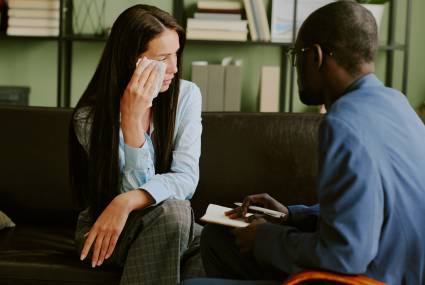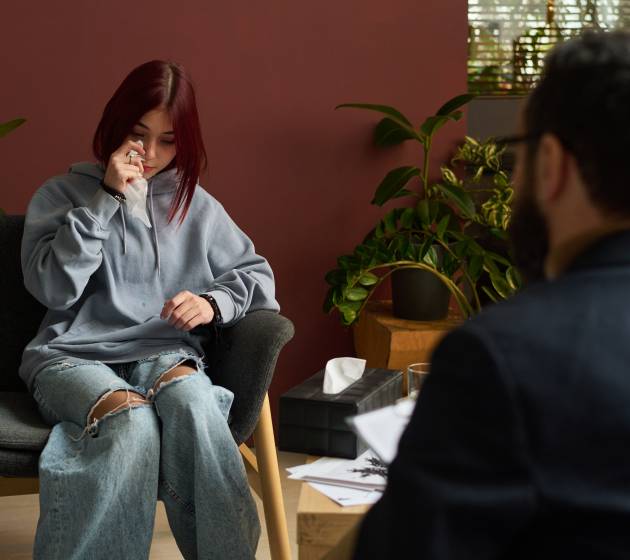Home » Counselling Services » Depression Counselling
Depression Counselling
Depression can impact every part of your life but you don’t have to face it alone. At The Family Psychology Place, we provide compassionate, evidence-based therapy to help children, teens, and adults understand their emotions, build resilience, and find a path toward healing and hope.


Depression Counselling in Calgary
Do you feel a dark shadow is constantly looming over your head, making it impossible to get rid of negativity? Is your sadness affecting your ability to work, socialize, and enjoy life? You might have clinical depression, sometimes known as major depression.
There is a way out from under this ominous shadow. The Family Psychology Place is here to help you with even the most severe case of depression. We can help you to light up inside, clear away the darkness, and show your joy to the world.
Treatment options for depression:
- Cognitive Behavioural Therapy (CBT): No matter how severe your depression is, we can help you deal with it. CBT helps you understand your thoughts, feelings, and behaviors. Then you can identify negative thoughts, so you can replace them with healthy, positive, and realistic ones.
- Art Therapy: It can be difficult to explain your inner emotions especially to a stranger. We allow you time to feel comfortable with us. It is often difficult to emit your emotions to someone new. Art therapy can be a wonderful way to aid in the treatment of depression. You can create a painting or drawing of your feelings, rather than express your thoughts through words. Letting your thoughts come out allows you to feel a sense of relief and you might even discover a newfound passion.
- Play Therapy: This type of therapy is geared toward children. This is an effective mental health treatment because it allows children to explore events that impact their current circumstances. With our professional guidance, a child can explore and experience more positive emotions. Play therapy can also be used with teens and adults. You will learn to rediscover the value of play and may come to understand serious issues affecting your emotional wellbeing. You will find a way to climb the mountain, instead of letting it crumble on top of you.
- Mindfulness: Mindfulness allows you to recognize your thoughts and emotions so that you may talk back to them. By talking back to your thoughts, you are disempowering your sadness and breaking into a more positive light. Our therapists will help you recognize and re-direct your negative thought patterns so you can put a smile back on your face.
- Medication: When you have severe depression, medication in addition to counselling may help. Our psychologists can support you in determining if medication is right for you.
- Psychoeducation: A therapeutic conversation with you and your loved ones, providing information and support for coping with depression through understanding.
Clinical depression can be caused by many things, including:
- Family history of depression
- Major stress
- Imbalance in brain chemistry and immune system
Along with counselling, you can implement many lifestyle changes to treat your depression. These include exercise, healthy eating, keeping in regular contact with your family and friends, and sleep hygiene.
Some signs of depression:
- Sleep problems
- Change in appetite and weight
- Irritability
- Loss of interest in people, work, hobbies, and sex
- Feeling useless, hopeless, pessimistic, excessively guilty, or having low self-esteem
- Difficulty remembering, concentrating, or making decisions
- Crying easily or feeling like crying but not being able to
- A loss of touch with reality through hearing voices or having strange ideas
If you have thoughts of suicide, which is another sign of depression, then you should immediately contact a mental health professional. We are here to help you get through the darkness and find positivity in your life.
Symptoms of depression might differ depending on your age. Seniors might not want to talk about their feelings and may lose interest in normally pleasurable activities. Children may pretend to be sick, cling to a parent, or worry they may die. Children might also act out and get in trouble at school or feel misunderstood. It can help to open up and talk to your loved ones, so they can help you get through tough times.
We work with you to find the right psychologist for you, the one with whom you feel most at ease with and connected to. Don’t diagnose yourself; come see us if you feel your symptoms may relate in any way to depression



